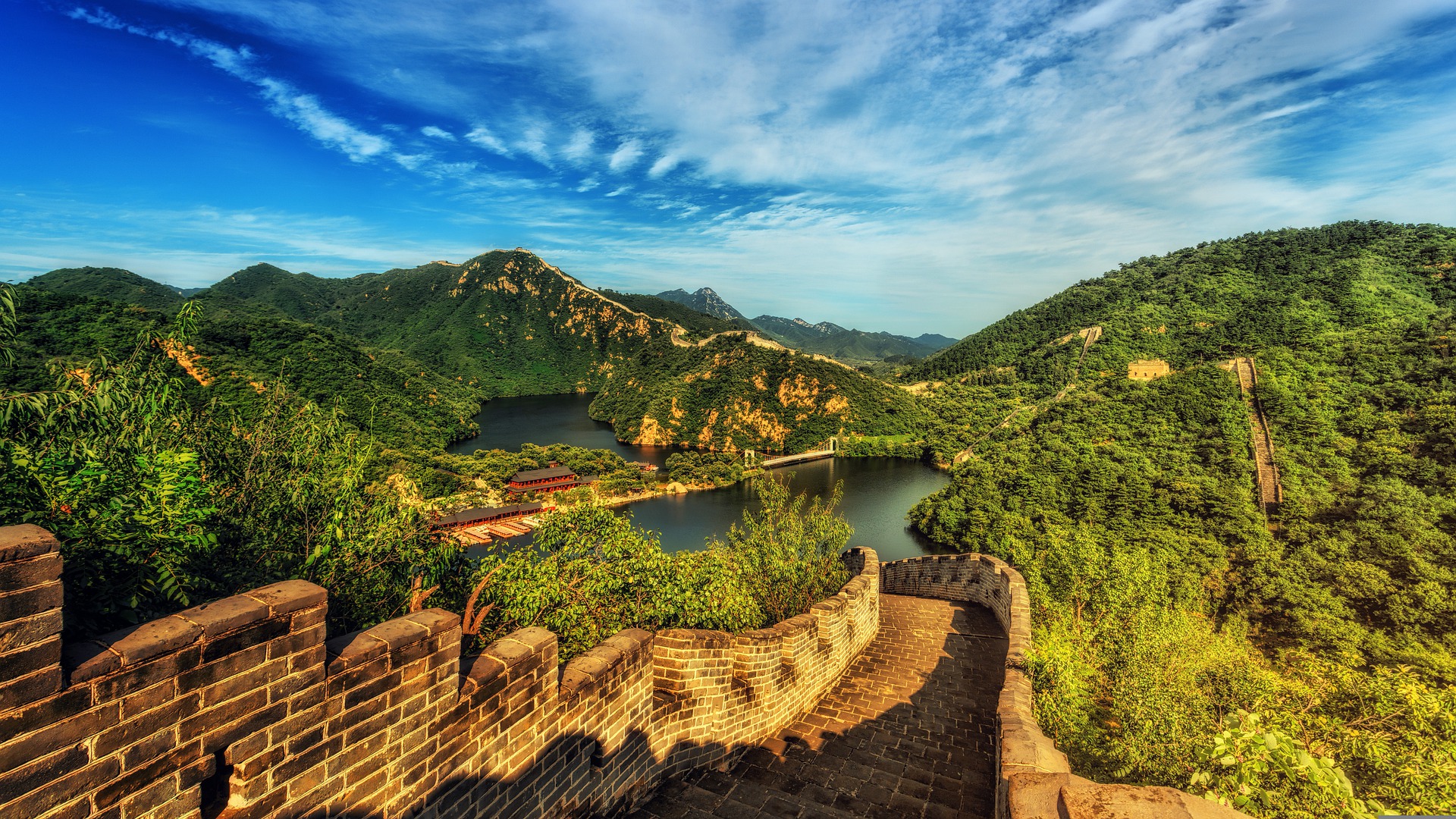The Maoism of Wokeism
The authors should have clarified that the radical Left’s imperative for change drives its demonstrative rage—in both China and the West. The authors admit in the first pages that all leftists share that imperative. At one point, the authors quote Gustavo Gorriti’s argument that communists have “a vested interest in social disruption.” Progressives have joined communists in that investment. Within a century, they have shifted from protecting consumers and employees legalistically to destroying majority cultures unlawfully. Progressives pretend to be enraged at our neoliberal world, even though they made it. Their rage encourages urgency and discourages debate. Progressives did not need Mao to realize the self-righteousness of rage.
https://amgreatness.com/2022/09/16/the-maoism-of-wokeism/
China’s Ponzi-like property market is eroding faith in the government
he 120km train ride between the cities of Luoyang and Zhengzhou is a showcase of economic malaise and broken dreams. From the window, endless half-built residential towers pass one after another for the duration of the hour-long journey. Many of the buildings are near completion; some are finished and have become homes. But many more are skeletons where construction ceased long ago. Developers have run out of cash and can no longer pay workers. Projects have stalled. Families will never get their homes.
https://www.economist.com/finance-and-economics/2022/09/12/chinas-ponzi-like-property-market-is-eroding-faith-in-the-government
These Are the Countries Most in Debt to China
There are an array of domestic push factors driving Chinese overseas development financing. These include Beijing’s objectives of exporting the excess capacity of its bloated state-owned contractors, like the China Road and Bridge Corporation, and showcasing its soft power. And there are, of course, pull factors: developing countries pursue financing from China when other avenues are closed, such as when they are sanctioned by the United States and other Western powers.
https://globelynews.com/world/top-countries-most-in-debt-to-china/
China Cancels 23 Loans to Africa Amid ‘Debt Trap’ Debate
Critics have long accused Beijing of practicing debt-trap diplomacy, suggesting it deliberately lends to countries that it knows cannot repay the money, thereby increasing its political leverage. China vehemently rejects this, alleging it’s a way for the U.S. to discredit Beijing, Washington’s main challenger in the quest for influence in Africa. China’s decision to forgive the zero-interest loans is, in part, aimed at countering the debt-trap narrative, said Harry Verhoeven, senior research scholar at Columbia University in New York.
https://www.voanews.com/a/china-cancels-23-loans-to-africa-amid-debt-trap-debate-/6716397.html
China Claims ‘Remarkable Ecological Progress’ While Exponentially Increasing Coal Usage
China’s state-run People’s Daily on Thursday ran an editorial bragging about “remarkable ecological progress over the past ten years,” even though China remains the world’s worst polluter by a wide margin and burns more dirty coal for electric power than ever before.
https://www.breitbart.com/environment/2022/09/16/china-claims-remarkable-ecological-progress-while-exponentially-increasing-coal-usage/
China’s Coal Power Boom
An unspoken truth of the climate-change crusade is this: Anything the U.S. does to reduce emissions won’t matter much to global temperatures. U.S. cuts will be swamped by the increases in India, Africa and especially China. Look no further than China’s boom in new coal-fired electricity. Under the nonbinding 2015 Paris climate agreement, China can increase its emissions until 2030. And is it ever.
https://www.wsj.com/articles/chinas-coal-power-boom-beijing-xi-jinping-climate-energy-biden-administration-11650480857
‘Naivety Toward China Is Over’: G7 Nations to Take Tougher Stance on China Trade
G7 Trade Ministers have said they will take a tougher stance on China over trade, after a two day meeting at Neuhardenberg Palace in East Berlin, Germany, on Sept. 15. Experts believe the change is because the countries have become increasingly alert to the Chinese regime’s aggressive behavior towards the international community. German Minister for Economic Affairs and Climate Protection Robert Habeck told reporters after the meeting that the G7 have agreed to take a tougher and more coordinated stance against Beijing on trade, as that “naivety toward China is over.”
https://www.theepochtimes.com/naivety-toward-china-is-over-g7-nations-to-take-tougher-stance-on-china-trade_4737757.html
Solomon Islands says Australia, NZ can use ports, not U.S.
In April, the Solomon Islands signed a security pact with China, allowing Chinese naval ships to replenish supplies in Honiara, causing the U.S., Australia and New Zealand concerns about China’s growing influence.
https://www.bignewsnetwork.com/news/272745231/solomon-islands-says-australia-nz-can-use-ports-not-us
Goodbye, Globalization?
Countries are now falling over each other to erect new barriers to trade, impose capital controls, and restrict migration flows. U.S. politicians have embraced this trend too: The strongest throughline between the Donald Trump and Joe Biden presidencies has been their hostility to economic openness. All this is taking place in a context of public pessimism: In March, just 22 percent of Americans told Gallup they were satisfied with the country’s direction.
https://reason.com/2022/09/11/goodbye-globalization/
America needs a proper risk strategy for its relations with China
In Washington, fears that Beijing is planning a military invasion are growing, and America is in danger of becoming embroiled in sparring between Beijing and Taipei in the Taiwan Strait. But what would happen if supply chains and financial flows between the US and China were cut off tomorrow? What’s the day-one plan?
https://www.ft.com/content/e2d666b4-142e-495f-ac88-7f6163d72b6d
China’s next Taiwan targets are lifelines of the US economy
U.S. firms are increasingly second-guessing their exposure in China and Taiwan for various reasons. Tensions over Taiwan remain elevated after House Speaker Nancy Pelosi’s recent visit, with military exercises on both sides of the Taiwan Strait inching toward live-fire shooting. Meanwhile, Chinese President Xi Jinping’s zero COVID policy continues to cause unexpected and disruptive factory shutdowns, and new U.S. restrictions on imports made with Chinese Uyghur forced labor threatens billions of dollars of U.S. companies’ revenues.
https://thehill.com/opinion/national-security/3638756-chinas-next-taiwan-targets-are-lifelines-of-the-us-economy/
Ameri-Can Or Can’t?: China’s Looming Demographic And Economic Collapse
Is this the “Chinese Century? Not necessarily, given that nation’s long-term demographic challenges (an aging population overtaking a contracting workforce). Hoover senior fellows Niall Ferguson, H.R. McMaster and John Cochrane discuss the geopolitical consequences of a China in decline – if it accelerates a move against Taiwan; should America be engaging in détente or a military buildup?
https://www.hoover.org/research/ameri-can-or-cant-chinas-looming-demographic-and-economic-collapse
G7 aims to raise $600 billion to counter China’s Belt and Road
Group of Seven leaders on Sunday pledged to raise $600 billion in private and public funds over five years to finance needed infrastructure in developing countries and counter China’s older, multitrillion-dollar Belt and Road project.
https://www.asahi.com/ajw/articles/14654517
Time to negotiate peace between Ukraine and Russia
More concerning is the “Great Power Competition” ramifications of a growing Sino-Russian partnership, and what this means for the future of the U.S. and its allies. China and Russia promise “no limits” to cooperation, with an in-your-face attitude toward the U.S. Largely unreported by media or Biden’s administration, a global power shift towards Asia, spurred by western sanctions “dismantling what’s left of European economies” is publicly flaunted by Mr. Putin.
https://www.washingtontimes.com/news/2022/sep/19/time-to-negotiate-peace-between-ukraine-and-russia/
Nearly 90 Percent of the World Isn’t Following Us on Ukraine | Opinion
Our familiar system of global political and economic alliances is shifting, and nothing has made this change clearer than the varied reactions to Russia’s invasion of Ukraine. While the United States and its closest allies in Europe and Asia have imposed tough economic sanctions on Moscow, 87 percent of the world’s population has declined to follow us. Economic sanctions have united our adversaries in shared resistance. Less predictably, the outbreak of Cold War II, has also led countries that were once partners or non-aligned to become increasingly multi-aligned.
https://www.newsweek.com/nearly-90-percent-world-isnt-following-us-ukraine-opinion-1743061
Chinese Foreign Minister Wang Yi Meets With Kissinger
“Chinese State Councilor andO – Foreign Minister Wang Yi on Monday met former U.S. Secretary of State Henry Kissinger in New York, the U.S. Describing Kissinger as an old friend to Chinese people, Wang congratulated him on his upcoming 100th birthday.”
https://twitter.com/CGMeifangZhang/status/1572129820896526336


